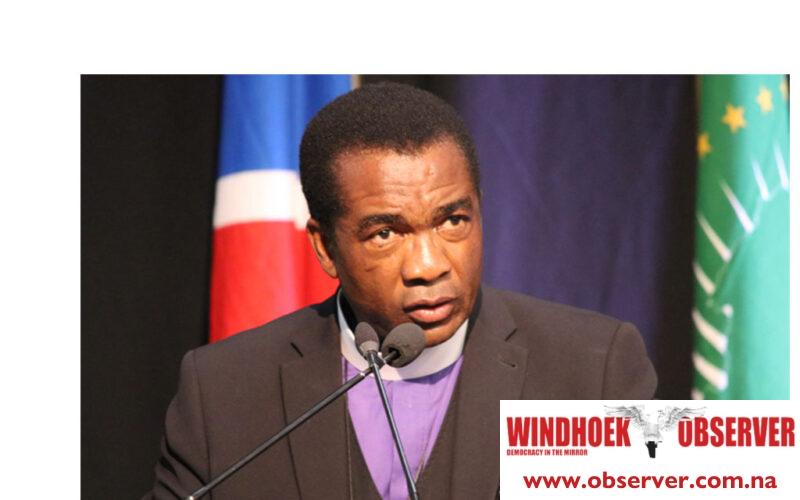Erasmus Shalihaxwe
Bishop Lukas Katenda of the Evangelical Angelica Church of Namibia said traditional, cultural, and religious marriage has always been between a natural man and a natural woman and should remain that way.
Katenda was responding to the new bill that parliament had tabled on Tuesday.
“The same-sex marriage that society is now pushing is a new phenomenon, people should listen to doctors on what they say about men who are sleeping with other men,” said Katenda.
According to him, sexual activities, especially between two men, are dangerous in the long run.
“They might be enjoying it now, but it is going to affect their health later. Doctors should also come out and educate the public, they can even remain anonymous if they are scared of public backlash,” said Katenda.
Dr Albert Kawana, the Minister of Home Affairs, Immigration, Safety and Security, introduced the Marriage Bill, arguing that Namibians’ cultural norms, traditions, ideology, and religious beliefs do not support same-sex marriages.
Kawana says Namibia is a paragon of democracy in Africa, and respect for the law is its foundation.
“The executive branch of the state has a duty to protect the values, cultural norms, and traditions of the Namibian people. These are the social values that today mirror the ideology of the Namibian society,” said.
He claimed that the Supreme Court’s May 2017 ruling, which recognized same-sex marriages consummated outside of Namibia for residency purposes, overlooked the fact that even the common law principle in question is subject to the requirement that marriage laws from other countries be subject to Namibian law.
He claims that Namibian laws do not recognise foreign marriages.
“I further submit that even if the common law principle relied upon by the Supreme Court finds application in Namibia in its original form and totality, it is still subject to Article 66 (1) of the Namibian Constitution to the effect that both “the customary law and the common law of Namibia in force on the date of independence [remains] valid to the extent to which such customary or common law does not conflict with [the] Constitution or any other statutory law. All these are clear provisions whose interpretation do not give rise to absurd results,” argued Kawana.
Popular Democratic Movement (PDM) member of parliament Elma Dienda expressed gratitude for the Marriage Bill, which she believes will advance Article 14 of the Namibian Constitution by providing clear definitions of marriage and spouses, thereby resolving previous confusion related to the Divorce Bill.
She expressed concerns about references to the upcoming Civil Registration and Identification Act, the process of designating marriage officers from religious denominations, and the potential misuse of terms like “any visa” and “other circumstances”.
“By providing precise definitions and addressing cultural and societal nuances, this bill lays a solid foundation for the protection and recognition of marital unions in Namibia,” she said.
According to her, the bill should not be confused with the Supreme Court ruling in Digashu regarding the recognition of same-sex marriages and suggests a two-year relationship period for marriages between Namibians and foreigners to prevent marriages of convenience.




